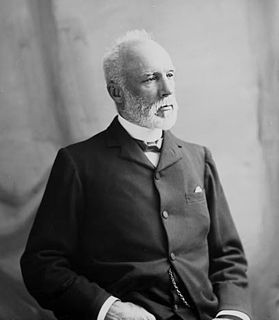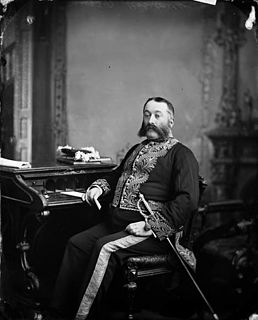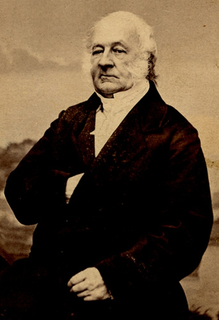Louis-Théodore Besserer (January 4, 1785 – February 3, 1861) was a businessman, notary and political figure in Lower Canada.

Civil-law notaries, or Latin notaries, are agents of noncontentious private civil law who draft, take, and record instruments for private parties and are vested as public officers with the authentication power of the State. As opposed to most notaries public, their common-law counterparts, civil-law notaries are highly trained, licensed practitioners providing a range of regulated services, and whereas they hold a public office, they nonetheless operate usually—but not always—in private practice and are paid on a fee-for-service basis. They often receive the same education as attorneys at civil law but without qualifications in advocacy, procedural law, or the law of evidence, somewhat comparable to solicitor training in certain common-law countries.

The Province of Lower Canada was a British colony on the lower Saint Lawrence River and the shores of the Gulf of Saint Lawrence (1791–1841). It covered the southern portion of the current-day Province of Quebec, Canada, and the Labrador region of the modern-day Province of Newfoundland and Labrador.
He was born at Château-Richer, Quebec in 1785. He studied at the Petit Séminaire de Québec and later became a notary. During the War of 1812, he was a lieutenant in the Quebec City militia, later becoming captain. He represented Quebec County in the Legislative Assembly of Lower Canada from 1833 to 1838. He supported the Ninety-Two Resolutions, but preferred working through legal channels to rebellion. So, the British government saw him as a rebel, while the Parti patriote resented his moderate stance. In 1845, he retired to a large estate that he had purchased in Bytown. He subdivided this property and sold off building lots; this area is now the Ottawa neighbourhood of Sandy Hill. Besserer Street in this area was named after him. [1]

Château-Richer is a small town situated in the Capitale-Nationale region of Quebec, Canada. Located on the north shore of the Saint Lawrence River east of Quebec City, Château-Richer is the seat for the Côte-de-Beaupré Regional County Municipality.

Le Petit Séminaire de Québec is a private French-language Roman Catholic secondary school in the Vieux-Québec area of Quebec City, Quebec which was originally part of the Séminaire de Québec. In 1985, the seminary transferred the secondary school to a new secular not-for-profit organization, "le Collège François-de-Laval", which was given the right to use the "Petit Séminaire de Québec" name.

The War of 1812 was a conflict fought between the United States, the United Kingdom, and their respective allies from June 1812 to February 1815. Historians in Britain often see it as a minor theater of the Napoleonic Wars; in the United States and Canada, it is seen as a war in its own right.
He died at Ottawa in 1861.









